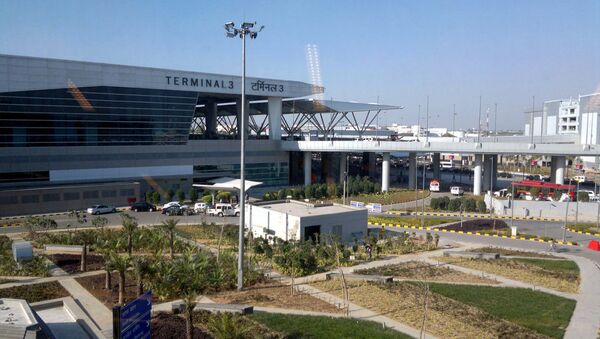Critical of the Indian government's decision on Kashmir, British Parliamentarian and the Chair of the All-Party Parliamentary Group for Kashmir Debbie Abrahams was denied entry by Indian officials after she landed in the national capital New Delhi.
She had arrived at Indira Gandhi International Airport on Emirates flight from Dubai at 0900 Hrs IST on Monday. After being taken away to the deportee cell at the airport, Abrahams said she was treated like a criminal.
"Along with everyone else, I presented myself at the immigration desk with my documents, including my e-visa, had my photograph taken and then the official looked at his screen and started shaking his head. Then he told me my visa was rejected, took my passport and disappeared for about 10 minutes. When he came back, he was very rude and aggressive, shouting at me to 'come with me'," said Abraham in a statement.
"British MP Debbie Abrahams' e-visa was cancelled, so she was not allowed entry in Delhi on Monday. She was informed about it in due time and with due process," Federal Home Ministry sources were quoted as saying.
Soon after the reports of the cancellation of the British parliamentarian's visa, the British High Commission released a statement.
The British High Commission spokesperson said: "We are in contact with the Indian authorities to understand why British MP Debbie Abrahams was denied entry to India. We provided consular assistance to her while she was at New Delhi Airport."
Abrahams is a critic of the Indian government's decision to strip the former state of Jammu and Kashmir of its special status. After the Indian government passed the legislation of abrogating Article 370 on 5 August last year, Abrahams wrote a letter to India's High Commissioner to the UK saying that the action "betrays the trust of the people" of Kashmir.
Since August 2019, the Indian government has hosted two delegations of foreign envoys to Kashmir to assess the situation on the ground in the region. The most recent delegation of 25 European parliamentarians was taken on a conducted tour of Kashmir on 12 February.
After the Prime Minister Narendra Modi-led government revoked the temporary special status of Jammu and Kashmir on 5 August last year, the region was placed under media and Internet lock-down, with several mainstream political leaders and civil rights activists placed under preventive detention.
The Indian government has said most of the detainees have been released and internet restrictions lifted completely on 25 January this year. But three former Chiefs of the state – Dr Farooq Abdullah, Omar Abdullah and Mehbooba Mufti are still under detention. They were placed under the harsh Public Safety Act (PSA). The latest to be slapped with the PSA, was Shah Faesal, a bureaucrat-turned-political activist.


